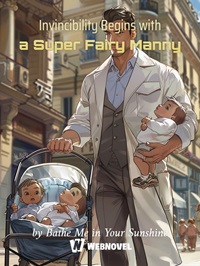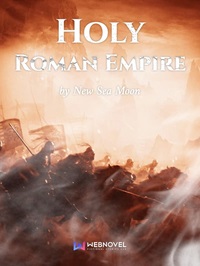Life of Being a Crown Prince in France - Chapter 69
- Home
- Life of Being a Crown Prince in France
- Chapter 69 - Chapter 69 Chapter 69 Competitive Advantage Asking for Monthly Votes
Chapter 69: Chapter 69 Competitive Advantage (Asking for Monthly Votes)
First, the Paris Commercial News had no aristocratic backing.
The newspaper’s owner was a merchant from Marseille, inheriting the family business, and he was the sole shareholder.
Secondly, the newspaper’s business was not very optimistic, having applied twice in a year for a delay in tax payment, so there should be a willingness to sell.
Finally, and most importantly, the Paris Commercial News owned a very large printing workshop, which seemed to be intended to run a printing business for other newspapers as well, though evidently this aspect had not brought in much profit.
Joseph decided then and there, it would be this one.
He wanted to enter the publishing industry, and the most direct approach was to acquire an existing newspaper.
After that, he screened a few other options, and by the time he finished, twilight had fallen.
Early the next morning, Joseph went straight to the Paris Commercial News office in the northern part of Paris to discuss the acquisition and, of course, to inspect the newspaper’s situation for himself.
The Paris Commercial News was located in a district that was not bustling, but a very large building by the river was extremely conspicuous.
A sign for “Paris Commercial News” hung on the building’s main entrance. From a distance, one could hear the noisy bustle from inside. Over at the back, black wastewater was being discharged continuously into the river.
Joseph first looked around the newspaper office, and that huge building was the printing workshop, which contained no fewer than seven printing presses.
The craftsmen in the workshop pulled the levers over a meter long on the printing machines, pressing blank sheets of paper against the baseplate.
When they lifted the levers again, a newspaper had been printed.
Around them, dozens of workers were busy with inking, drying, and transporting, their movements quick and precise, obviously experienced hands.
After Joseph had looked over the storeroom and editorial room, he had a general understanding of the overall situation of the newspaper and was quite satisfied. So, he took the opportunity to stop an editor and expressed his desire to meet with the newspaper’s owner.
The editor quickly led them upstairs to an office on the second floor, pointing to a slightly overweight middle-aged man in a dark green vest wearing glasses: “This gentleman is Mr. Denico.”
Upon seeing visitors, Denico immediately rose to greet them, smiling as he bowed, “Welcome, esteemed sir. May I ask if you are looking to place an advertisement, or would you like something printed?”
Joseph disliked dawdling, and after returning the greeting, he got straight to the point, “Mr. Denico, I am interested in acquiring your newspaper.”
Denico immediately sat back down in his own chair, waving his hands as he exclaimed, “Please go back, not for sale.”
Seeing that Joseph didn’t move, he raised his voice, “Leave, or else I will have you removed!”
Joseph glanced at Eman, thinking according to the cliché in the movies, shouldn’t you stand up and say something like, “How rude! Do you realize that you are standing before His Royal Highness, the Crown Prince?”
However, Eman apparently had no intention of intervening.
Joseph had no choice but to pretend not to hear and continued, “Can you tell me why you won’t sell?”
Denico muttered, looking down, “I promised my father that I would run this newspaper well.”
Joseph exhaled and sat down on the chair opposite him, smiling, “I offer 150,000 livres for the acquisition. Moreover, you can still manage and run the newspaper.”
He had brought an accountant with him and had already made a rough estimate. The newspaper was worth about 120,000 to 140,000 livres, mainly for the real estate and the printing workshop.
Denico was taken aback; in fact, the newspaper had been running at a loss for over a year, and he thought it would be good to sell for just over 100,000. He hadn’t expected this young man to offer such a high price.
He began to struggle internally but still shook his head, “No… My father instructed me before he left…”
Joseph nodded, “160,000 livres.”
“But…”
“170,000, my last offer.”
“Paid in full?”
“Yes.”
“170,000 livres… Are you sure… you want to acquire my newspaper, sir?”
“Yes.” Joseph signaled his accountant to show the newspaper owner proof of his bank assets worth 170,000 livres.
Denico stared into Joseph’s eyes, confirming he wasn’t joking, struggled for a good while, then suddenly relaxed his shoulders, revealing a resolute expression, “Oh, alright, it’s yours then.”
He thought to himself: Dear father, you can’t blame me, he simply offered too much…
Joseph’s lawyer immediately took out the contract that had been prepared in advance and handed it to both parties to sign. Afterward, the accountant went with Denico to the bank to settle the payment.
The efficiency of banks during this era was originally not high, and on top of the large amount, the procedures took over two hours to complete. All the payments had to wait three more days before they were entirely settled.
On the way to the bank, Denico had already inquired about Joseph’s identity from the accountant and felt that he had struck it lucky today. Not only had he made a large sum of money, but he had also made a connection with the Crown Prince.
When he returned, he became exceedingly respectful, repeatedly assuring Joseph that he would definitely manage the newspaper well for the Crown Prince.
Joseph encouraged him and asked, “May I ask how the newspaper’s profits were before?”
Denico hesitated and said, “You know, nowadays people love reading those tabloid news. It’s quite difficult for newspapers like ours that focus on liberty and ideals… um, we lost 1,200 livres this year, but in the first half of last year, we still made a few hundred.”
Fearing the Crown Prince might change his mind, he quickly added, “Actually, when business was okay in the previous years, we used to make a thousand livres annually.”
Joseph nodded, “Then I’ll give you an annual salary of 1,000 livres, plus 5% of the newspaper’s total profit as a bonus.”
His acquisition of the newspaper was entirely for winning the war of public opinion, and Paris Commercial News was going to be his important base of operations. Therefore, it was crucial to stimulate the enthusiasm of the management as much as possible, binding their interests with those of the newspaper.
Denico couldn’t believe his ears—selling the newspaper meant he no longer had to worry about losses, and now he was going to receive such a high salary!
The Crown Prince was like a godsend to rescue him!
He was so moved that he repeatedly pledged loyalty and swore to do his utmost to satisfy the Crown Prince, to make the newspaper quickly profitable and grow stronger!
Then he heard Joseph say that he intended to increase the salary of the newspaper’s management and core craft workers by 20%. He immediately urged, “Your Highness, the newspaper is still losing money, it’s not appropriate to increase the expenses by such a large amount.”
Joseph smiled. The man was indeed diligent and responsible, immediately thinking of saving money for his employer.
“Don’t worry, the business situation will improve very soon. Do as I say.”
Joseph didn’t linger on the issue of salary and immediately brought up a serious matter:
“Mr. Denico, how many skilled plate-making craftsmen does the printing workshop currently have?”
The current newspaper printing technology was quite rudimentary, with the text segment using movable type made from lead, which was relatively cheap.
All pictorial content required copper plate intaglio printing technology, where the craftsmen etched onto a copper base, one detail at a time, before fitting it into the movable type assembly, or printing it separately. Because the engraving was very laborious and time-consuming, this was the most expensive part of the printing process.
Without hesitation, Denico said, “Your Highness, the workshop currently has five plate-making craftsmen, among whom three have over ten years of experience and are quite renowned in the Coppersmiths Guild.”
Joseph nodded, “Please prepare some fine-textured chalkstone plates for me, cut to the size of a drawing board, and polish one side until smooth. I’ll need about 40 pieces. Bring those three craftsmen to the Palace of Versailles—I have a task for them.”
Chalkstone is a type of limestone, commonly seen as a building material and inexpensive.
Denico, surprised, said, “Chalkstone? Are you planning to repair the floor?”
Joseph smiled slightly and shook his head, “To be used for lithographic printing.”
Denico’s eyes widened, “You mean to say, print using stone plates?”
“Exactly.”
Joseph was well aware that simply having high-quality content wasn’t enough to dominate the publishing industry. One must tackle cost, distribution channels, and other aspects to leave no chance for the competition to retaliate.
My newspaper features brilliant content, and costs just 1 sou, or even only 8 deniers. Your newspaper has mundane content and costs 4 sous. What can you use to compete with me?
Regarding cost control, stone plate printing, also known as lithography, was a major asset.
Due to cheap raw materials and simpler, quicker plate production, the cost of stone plate printing was only one-fifth or even one-tenth of the current copper plate printing!
Another tool for reducing costs was the cheap papermaking technique—using wood as the raw material for making paper. If produced on a large scale, it could reduce the cost of paper by 70%. Historically, this paper-making technique even triggered a newspaper revolution in England.
Armed with these two technologies, Joseph had ample confidence to push the price of his newspaper to less than a fifth of the current cost while still making a profit.
Of course, the technology required for cheap papermaking was more demanding, and he wasn’t completely certain of success, but stone plate printing wasn’t complex, and experienced plate-making craftsmen should be able to master it quickly.
After that, Joseph instructed Denico on some other tasks that needed to be done in the near future, such as increasing the newspaper’s staff, stockpiling more ink and paper, and designing a brand-new layout for a publication called “News and Pictures.”
Having roughly arranged the newspaper’s affairs and seeing that twilight was approaching, Joseph, before leaving the newspaper, casually asked Denico, “Is there a large paper mill nearby Paris?”
Denico immediately pointed northeast, “Saint Antoine Town has one. Your Highness, half of the paper used in Paris comes from there.”














